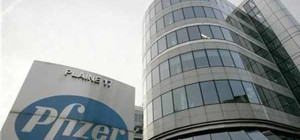Vehicle accidents can be life-altering events that result in significant financial burdens, physical injuries, and emotional trauma. When faced with such circumstances, understanding how to maximize your accident claim becomes crucial for securing the compensation you deserve. With proper preparation, documentation, and legal guidance, victims can significantly improve their chances of receiving fair compensation for their losses.
Interpreting Settlement Statistics and Expectations
The landscape of vehicle accident settlements varies considerably based on numerous factors, but recent data provides valuable insights into what victims might expect. The average settlement amount for a car accident is approximately $37,248.62, though this figure can fluctuate dramatically depending on the severity of injuries and circumstances involved. As of 2024, the average car accident settlement in California ranges from $15,000 to $80,000, while surveys indicate that the average settlement amount in Texas is between $20,000 and $25,000.
These statistics reveal the wide range of potential outcomes, with cases in which non-injury or only minor injuries occurred typically resulting in much lower settlements, generally between $10,000 – $15,000. However, cases involving significant injuries or complex circumstances can yield substantially higher awards. In 2022, with a high claim severity, the average car insurance settlement claim was $24,211, highlighting how injury severity directly impacts compensation amounts.
An encouraging statistic for accident victims is that around 95-96% of personal injury cases are settled before trial, with the success rate for car accident injury claims standing at approximately 61%. This data suggests that most cases can be resolved without the need for lengthy court proceedings, though having strong evidence and legal representation remains essential.
Immediate Steps to Take After an Accident
The moments immediately following a vehicle accident are critical for establishing the foundation of a successful claim. Your actions during this period can significantly impact the strength of your case and the ultimate compensation you receive. The first priority should always be ensuring safety and seeking medical attention for any injuries, regardless of how minor they may seem initially.
Once safety is secured, documentation becomes paramount. Taking comprehensive photographs of the accident scene, vehicle damage, road conditions, traffic signs, and any visible injuries provides crucial visual evidence that can support your claim. These images serve as contemporaneous records that cannot be disputed later and help establish the severity of the impact and the conditions that contributed to the accident.
Gathering witness information is equally important, as independent testimony can provide valuable third-party perspectives on how the accident occurred. Evidence such as witness statements, photos of the accident site or vehicle damage, security camera footage of the accident, and the police crash report are the best ways to argue your case and establish fault.
Creating Solid Evidence Documentation
The strength of your vehicle accident claim depends heavily on the quality and comprehensiveness of the evidence you present. Medical records are a direct and indisputable link between the accident and your injuries, illustrating the impact on your health and well-being. These records should include detailed documentation of all treatments, diagnostic tests, medications, and the progression of your recovery.
Working closely with your healthcare providers to ensure thorough documentation is essential. You should also ask your doctor to detail your improvement over time. Your medical provider should establish a treatment plan and estimate how long it will take for you to see maximum improvement. This medical timeline helps establish both current and future damages related to your injuries.
Beyond medical documentation, preserving physical evidence from the accident scene strengthens your position. Traffic camera footage may show another driver running a red light, while black box data can help establish who was at fault. Modern vehicles often contain electronic data recorders that capture crucial information about speed, braking, and other factors leading up to the collision.
Handling Interactions with Insurance Companies
Insurance companies are businesses focused on minimizing their financial exposure, which means their initial settlement offers are often significantly lower than what your claim is actually worth. Understanding this dynamic is crucial for maximizing your compensation. Insurance adjusters may employ various tactics to reduce settlement amounts, including questioning the necessity of medical treatments or suggesting that injuries were pre-existing.
Maintaining detailed records of all communications with insurance companies protects your interests throughout the claims process. This includes keeping copies of all correspondence, documenting phone conversations with dates and times, and never providing recorded statements without legal counsel present. Insurance companies often use recorded statements to find inconsistencies or admissions that can be used to reduce settlement amounts.
According to Morris Injury Law, Las Vegas motorcycle accident lawyers, understanding the full scope of your damages is essential before accepting any settlement offer. This includes not only immediate medical expenses and vehicle repairs but also future medical costs, lost wages, diminished earning capacity, and pain and suffering. Many accident victims make the mistake of settling too quickly before the full extent of their injuries and losses becomes apparent.
Evaluating Comprehensive Damages
Maximizing your vehicle accident claim requires a thorough understanding of all potential damages you may be entitled to recover. Economic damages include quantifiable losses such as medical expenses, lost wages, property damage, and future medical costs. These damages are typically easier to calculate as they involve specific monetary amounts and can be supported by bills, pay stubs, and repair estimates.
Non-economic damages, while more subjective, can represent a significant portion of your overall compensation. These include pain and suffering, emotional distress, loss of enjoyment of life, and loss of consortium. Calculating these damages requires careful consideration of how the accident has impacted your daily life, relationships, and overall well-being.
Benefits of Professional Legal Representation
While it may seem tempting to handle a vehicle accident claim independently, professional legal representation can significantly impact the outcome of your case. They are experts at persuading the insurance company to change their determination, and experienced attorneys understand the tactics insurance companies use to minimize settlements.
Legal professionals bring valuable expertise in case preparation and evidence gathering. This case preparation includes serving discovery demands to the other side and having your attorney conduct depositions or request records. Attorneys also have access to networks of expert witnesses, including accident reconstruction specialists, medical experts, and economists who can strengthen your case.
Preventing Common Errors and Pitfalls
Several common mistakes can significantly reduce the value of your vehicle accident claim. One of the most damaging is providing recorded statements to insurance companies without legal representation. These statements can be used out of context or twisted to suggest partial fault or minimize injuries.
Another critical mistake is accepting the first settlement offer without fully understanding the extent of your damages. Insurance companies often make quick, low-ball offers hoping victims will accept them before consulting with legal counsel or fully understanding their rights. Once you accept a settlement, you typically cannot pursue additional compensation later, even if your injuries prove more severe than initially thought.
Delaying medical treatment or failing to follow prescribed treatment plans can also severely impact your claim. Insurance companies may argue that gaps in treatment indicate your injuries were not serious or that you failed to mitigate your damages. Consistent medical treatment not only supports your recovery but also provides the documentation necessary to support your claim.
Closing Thoughts
Maximizing a vehicle accident claim requires a comprehensive approach that begins immediately after the accident and continues throughout the entire claims process. Success depends on thorough documentation, understanding the full scope of your damages, and navigating the complex insurance landscape with skilled legal guidance. While the statistics show that most cases settle successfully, the difference between a minimal settlement and maximum compensation often lies in the quality of preparation and representation. By taking proactive steps to protect your interests and working with experienced legal professionals, accident victims can significantly improve their chances of receiving the compensation they deserve for their injuries and losses.






